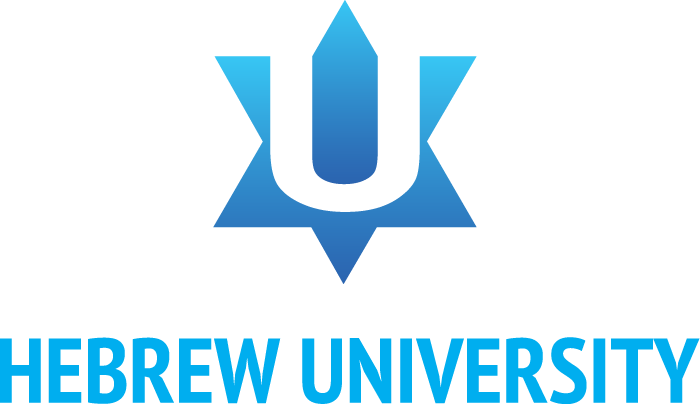
A Master in Health Services Administration prepares people to shape the industry of healthcare at leadership or executive level. The importance of an online M.H.A. program in health services administration is that it allows people to conduct and prepare research while applying the outcomes to impact performance, and policies in healthcare systems.
- Apply theories of leadership in healthcare sting, leading to adequate performance.
- Analyze, interpret, and communicate healthcare information in finance, marketing, and human resources.
- Generate financial statements and records for people using healthcare systems based on governing rules and policies.
- Identify existing challenges in the healthcare environment and provide adequate decisions to solve them.
Pursing an M.H.A. in Health Services Administration allows people to have a solid foundation in healthcare cost accounting, ethics management, and problem-solving, among others. Whichever, people are required to meet the minimum requirements for them to be recognized in the field of healthcare settings as leaders. Various programs are offered in Health Services Administration, and they include:
- Cost Account for Healthcare Services. Examines the operations of markets, the effects of strategic behavior on profits, and how to maximize favorable economic rents. However, this involves four main areas, such as firm governance, industrial structure, uncertainty, and market micro-structure.
- Health Finance: Deals with basic principles of finance and insurance concepts.
- Operations Research and Quality in Healthcare. Explores decisions making a framework for both operating and control systems in a healthcare setting.
- Information Technology in Healthcare: Illustrates the needs of information technologies in organizations during the implementation of policies.
- Ethics in Public Health: Introduces people to essential ethical issues in public health regulations.
See Yourself Succeed in Health Services Administration
In the online Health Services Administration program, scholars learn how to:
- Evaluate the effectiveness of healthcare regulations in a dynamic healthcare environment.
- Ensure successful leadership in dealing with fundamental service issues.
- Apply their skills in critical thinking to analyze controversial problems and conflict viewpoints related to ethics in healthcare.
- Evaluate economic evaluation in healthcare systems.
- Participate actively in scientific inquiry that leads to an increase in knowledge and experience in health services research and practice.
Career & Outcomes

The online M.H.A. program in Health Services Administration prepares learners to become leaders and managers in the design and delivery of health services in both private and public fields. After completion of the program, successful individuals can become leaders in various fields, such as public health agencies, nursing services, hospital administration, and healthcare insurance companies, among others. Based on the US Bureau of Labor Statistics, managers in the Health Services Administration, including those with gets a salary of $82,730. Besides, M.H.A. gives people an added advantage in which they can earn a salary of around $111,290 for those working in the pharmaceutical industry. With the availability of some organizations like the American Association of Healthcare Management, professionals have an insight into what they are supposed to do after completing their programs. Furthermore, people are required to have a certain level of experience before pursuing an M.H.A. in Health Services Administration. With the online M.H.A. in Health Services Administration, leaders in the healthcare field can deal with challenges associated with current systems, leading to satisfactory outcomes.
Program Outline:
3 Credits
Course Description:
How markets work, how positive economic rents (profits) are made, and how strategic behavior affects profits. Four major topical areas include market microstructure, industrial structure, uncertainty, and incentives, and firm governance.
3 Credits
Course Description:
How markets work, how positive economic rents (profits) are made, and how strategic behavior affects profits. Four major topical areas include market microstructure, industrial structure, uncertainty, and incentives, and firm governance.
3 Credits
Course Description:
Frequency distribution; probability; significance tests; estimation; trends; data handling; simple operations research applications. The statistical approach to rational administrative decision making.
3 Credits
Course Description:
Frequency distribution; probability; significance tests; estimation; trends; data handling; simple operations research applications. The statistical approach to rational administrative decision making.
3 Credits
Course Description:
Frequency distribution; probability; significance tests; estimation; trends; data handling; simple operations research applications. The statistical approach to rational administrative decision making.
3 Credits
Course Description:
Role of the hospital in health services delivery and relationships with other elements of the healthcare system. Problems of achieving results with emphasis on governance, medical staff, and role of administrator.
3 Credits
Course Description:
Defining, analyzing, and solving significant senior management-level operational or health public policy problems by student groups in Twin Cities health services organizations.
3 Credits
Course Description:
Ethical issues faced by health care managers as leaders of an organization, members of a profession, and coordinators of clinical processes. Perspectives of managerial, organizational, professional, and clinical ethics.
3 Credits
Course Description:
Managing the marketing function; marketing planning, strategy, and management concepts. Identifying marketing problems and opportunities; constructing evaluating and managing a marketing plan.
3 Credits
Course Description:
Sociopolitical, economic, and moral/ethical issues confronting the U.S. public health and medical care system. Trends in service provision, human resources, financing and health services organization, and implications for the public’s health.
3 Credits
Course Description:
Basic principles of finance and selected insurance concepts integrated and applied to healthcare with public sector emphasis. NPV; public financing; capital and operating budgets; Medicare PPS and RBRVS; risk-adjusted capitation; healthcare reform.
3 Credits
Course Description:
Decision-making framework for both operating and control systems in the hospital environment. Basic modeling techniques and examples of actual hospital applications.
3 Credits
Course Description:
How to analyze organization information needs, incorporate these needs into information technology (IT) policy and planning, and implement IT policies.
3 Credits
Course Description:
Designing /creating health care delivery services and experiences. Innovation process, methodologies/tools of innovation design, strategies/processes to ensure execution.
3 Credits
Course Description:
Leading/participating in interdisciplinary teams. Team communication, problem-solving, conflict management, organizational support.
3 Credits
Course Description:
Lectures, seminars, and demonstrations on problem-solving theory and technique. Management problem solving of cases. Solving a management problem within a health services organization and presenting a report.
3 Credits
Course Description:
Introduction to ethical issues in public health practice/policy. Ethical analysis, recognizing/analyzing moral issues.
3 Credits
Course Description:
Survey and solution of management problems within a local health services organization, preparation of formal management report.
Total Credits Hours
45
Disclaimer: Hebrew University and Jewish University System (JUS) reserve the right, because of changing conditions, to make modifications of any nature in academic programs and requirements of the university and its constituent colleges without advance notice. Students are advised to consult regularly with an academic advisor concerning their programs of study.


